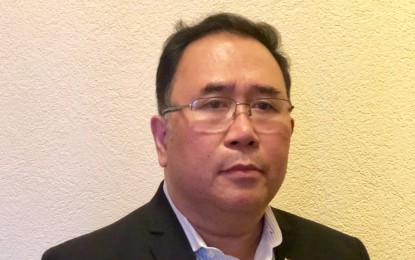
Undersecretary Severo Catura, of the Presidential Human Rights Committee Secretariat (PHRCS), says the use of children as child warriors is the worst form of child labor and modern-day slavery (PNA File photo)
MANILA – Following the permanent closure of 55 Salugpungan schools, a Palace official assured Wednesday that Salugpungan schools will be replaced with institutions that will truly ensure that indigenous children will have a much better future.
Undersecretary Severo Catura, of the Presidential Human Rights Committee Secretariat (PHRCS), was reacting to Bishop Roberto Mallari of San Jose, chairman of the Catholic Bishops’ Conference of the Philippines’ (CBCP) Episcopal Commission on Catechesis and Catholic Education, who lamented the closure of indigenous people’s schools in the Davao Region.
“We owe the hope of our country and of our indigenous communities no less than this,” Catura said in a statement sent to the Philippine News Agency..
The government, he said, will step up in its responsibility to protect indigenous children and this responsibility to protect includes shielding them from the horrors of terrorism, from being trained as child warriors,” he added.
“Lest we forget, the use of children as child warriors is the worst form of child labor and modern-day slavery,” he said.
He said the good Bishop need not worry that the students and teachers he speaks of who have been affected by the closure will not be attended to.
“The Department of Education (DepEd) and the local governments concerned are already addressing the issue,” Catura said in a statement sent to the Philippine News Agency.
Mallari, in a news article posted online on Vatican News on Oct. 14, was quoted as saying, “ I am saddened with the closure of the schools instead of making an effort to improve the education system.”
He added that the DepEd should have considered the fate of more than 3,500 affected learners and teachers and that it was better to have schools, even without fulfilling all the necessary conditions, than no school at all.
Catura said the government welcomes Mallari’s sentiment, not because it agrees with him, but because this will offer an opportunity to clarify his concerns, and perhaps meet with him if he so desires.
“We share in his concern for the education of children in our indigenous cultural communities, and fully agree with the need for the government to do more in uplifting its quality. And this is precisely the reason why the Salugpungan schools had to be closed,” he said.
He lamented that having fallen into the hands of local communist terrorists, the Salugpungan schools have ceased to be places for our indigenous children to learn upright living and nation-building.
“Instead, they have been used to teach violence, killing, and nation-destruction,” he added.
The DepEd-11, on Oct. 8 ordered the closure of 55 controversial Salugpungan Ta'Tanu Igkanogon Community Learning Center, Inc. (STTICLCI) based on the findings of the five-man fact-finding committee created by DepEd-11 in August.
Jenelieto Atillo, DepEd-11 spokesperson, said the decision did not rest solely on STTICLCI's alleged links with the New People's Army (NPA), but that the findings showed various regulatory violations, deficiencies, and compliance issues on the part of the school management.
Among the key findings, he said, are as follows:
* The STTICLCI failed to comply with the curriculum standards set by DepEd-11;
* It brought its students away from their homes without the consent of their parents and used them to generate funds by making them perform in various events, a violation of DepEd's Child Protection Policy;
* Teachers of the STTICLCI lacked the professional license to teach, or are not passers of the Licensure Examination for Teachers. Instead, classes of the core learning areas were conducted by learning facilitators, in violation of DepEd Order 21 series of 2014;
* The STTICLCI has been operating within the ancestral domain of tribal communities without obtaining the mandatory Free and Prior Informed Consent (FPIC) and the subsequent certification precondition from the National Commission on Indigenous Peoples (NCIP);
* Some STTICLCI students do not have learner's reference numbers (LRN), a violation of the requirement of DepEd Order 26 series of 2015; and
* The STICLCI has misrepresented its enrolled data, and that the data contained in the document submitted to the DepEd do not match with the records in the DepEd learners' information system.
Atillo assured that STTICLCI's closure would not affect its learners, who will be accommodated by DepEd-run schools near their areas. In the Davao region alone, at least 33 DepEd-run schools are located adjacent to Salugpungan schools. (PNA)
